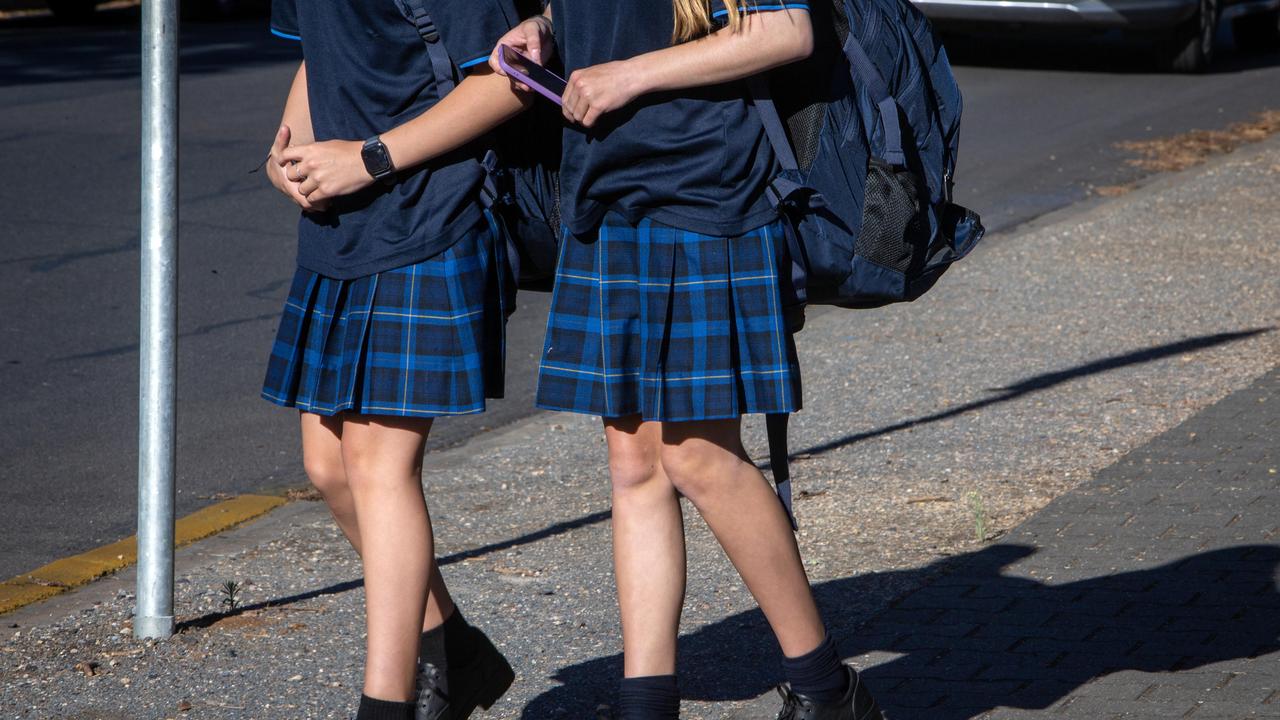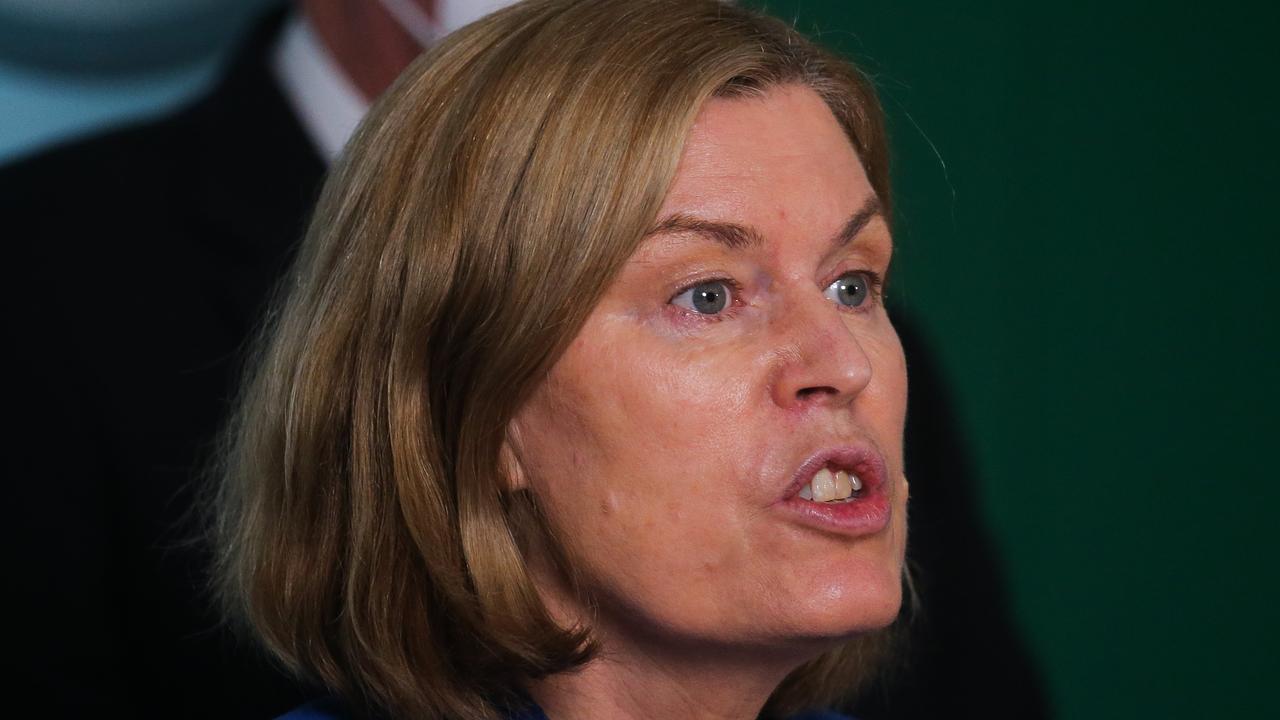Coronavirus restrictions could be tightened if regional outbreaks occur
Restrictions are slowly being eased across Australia, but our deputy chief medical officer has warned they could come back quickly.
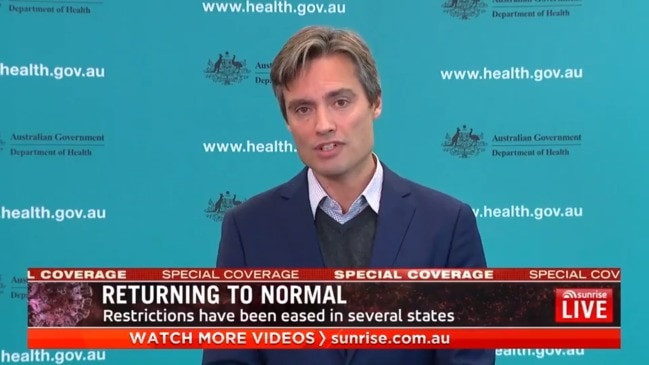
Australians may have earned an “early mark” in the easing of COVID-19 restrictions, but deputy chief medical officer Nick Coatsworth has warned lockdowns will be tightened in regions again if there are cluster outbreaks.
Last night, chief medical officer Brendan Murphy warned people not to get complacent now that some measures have been lifted – with more set to ease following a National Cabinet meeting this Friday, a week earlier than originally planned.
“Australians have earned an early mark through the work that they have done,” Prime Minister Scott Morrison said last Friday.
“That decision will now be made next Friday, and we’ll be meeting twice over the course of the next week to ensure that we work through the many things that have to be resolved in order to make those decisions.”
However, speaking on Sunrise this morning, Dr Coatsworth said if there are clusters of outbreaks, regions could be forced into lockdowns similar to the one put in place in Tasmania’s northwest to combat a resurgence of the virus.
RELATED: Follow the latest coronavirus updates
RELATED: How are you coping during the pandemic? Take our survey
"The more Australians with the app on their phone, the easier the job will be for our disease detectives"
— Sunrise (@sunriseon7) May 3, 2020
Deputy Chief Medical Officer Dr Nick Coatsworth says more Australians need to download COVIDSafe for states to ease restrictions.
Latest updates: https://t.co/NkVFH2ldL2 pic.twitter.com/dZ42lbizbB
“It’s going to be a matter of looking over the next four weeks and seeing what happens. There likely won’t be a threshold,” he told hosts David Koch and Sam Armytage.
“If there was an increase in COVID-19, it’s likely to be in a very confined geographic area, a region of Australia, and so you would expect a sort of regional response or quarantine, a bit like you say in northwest Tasmania – which was really a great model for how a jurisdiction should respond to COVID-19 for the rest of the year.”
Non-essential retail services were closed and two hospitals shut following a coronavirus outbreak in the Tasmanian city of Burnie in early April, forcing hospital staff, their families and some recently-discharged patients into a fortnight of isolation.
As our “mobility” increases with the easing of virus measures, Dr Coatsworth said we are, “to an extent” making the virus’s job – of moving from one person to another – “easier”.
In order to combat this, which would also lead to the relaxation of more rules, Dr Coatsworth said Australians need to keep their behaviours the same as they have since the beginning of the national COVID-19 outbreak.
RELATED: When will lockdowns end in my state?
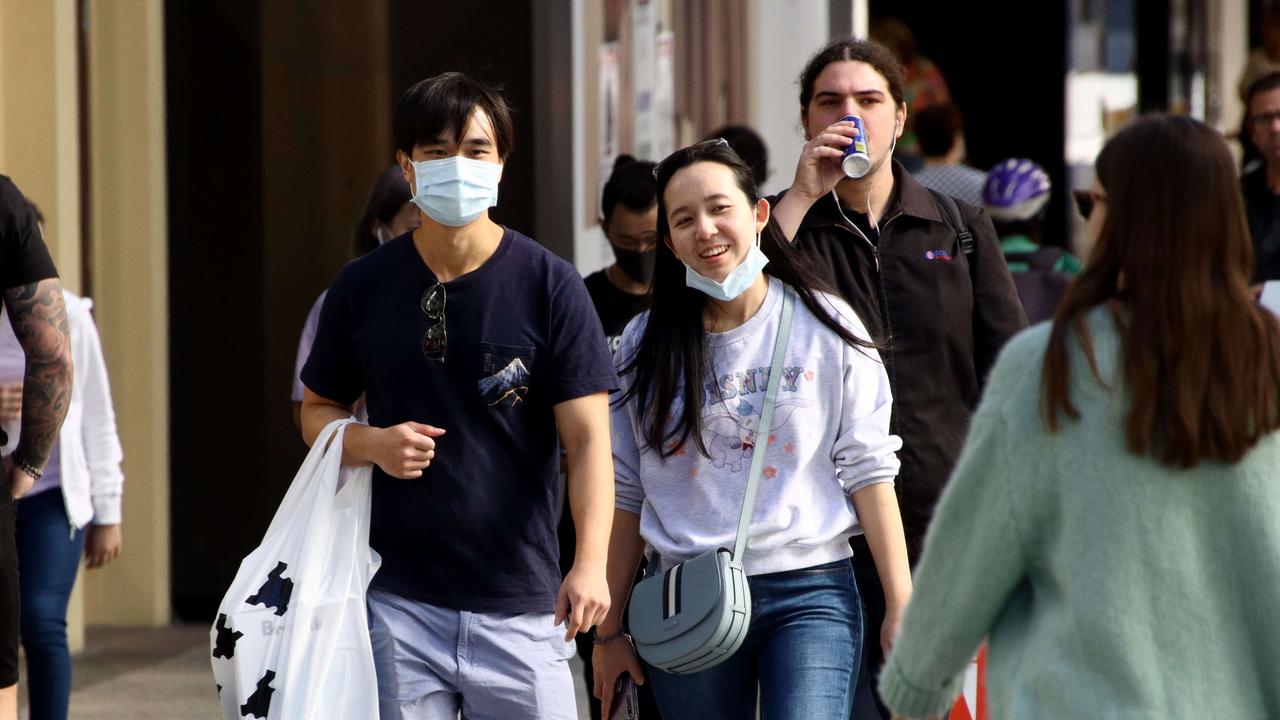
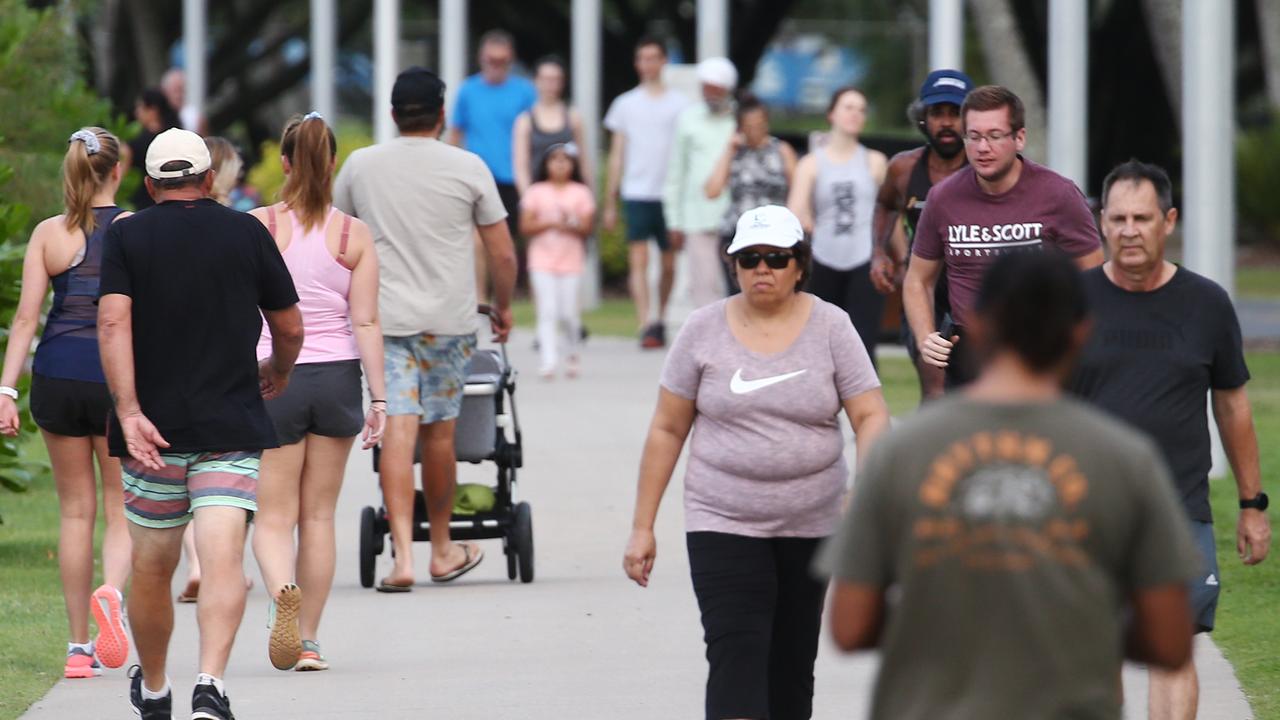
“So washing hands, good cough etiquette, great hygiene and most importantly, if we’re at all sick with a cold, we should stay at home, stay out of the workplace, keep our kids home from school, and we need to get tested,” he said.
“The testing’s available and anyone with a symptom of a cold should get tested for COVID-19.”
He also urged Australians to download the Government’s COVIDSafe app, if they hadn’t already.
“The logic is that the more Australians that we get with the app on their phone able to make that digital handshake with other people that they’ve been in contact with, the easier the job will be for our disease detectives,” Dr Coatsworth explained.
“And it is an important thing as our mobility increases, to have everything at our disposal to keep ourselves COVID safe.”
Australia has now recorded more than 6800 cases of COVID-19 – the majority of which are in New South Wales. The death toll stands at 95.


